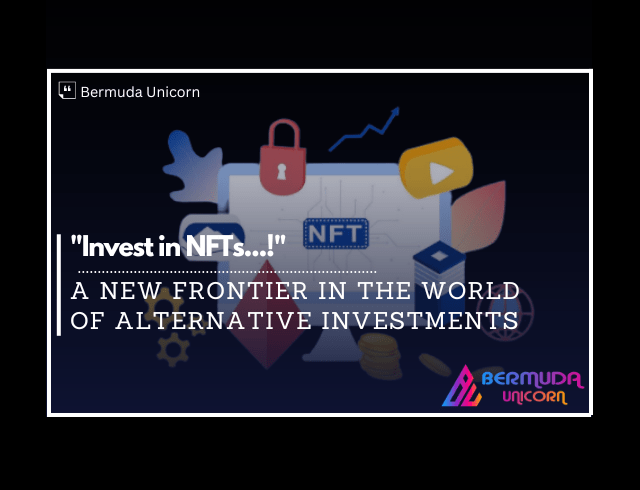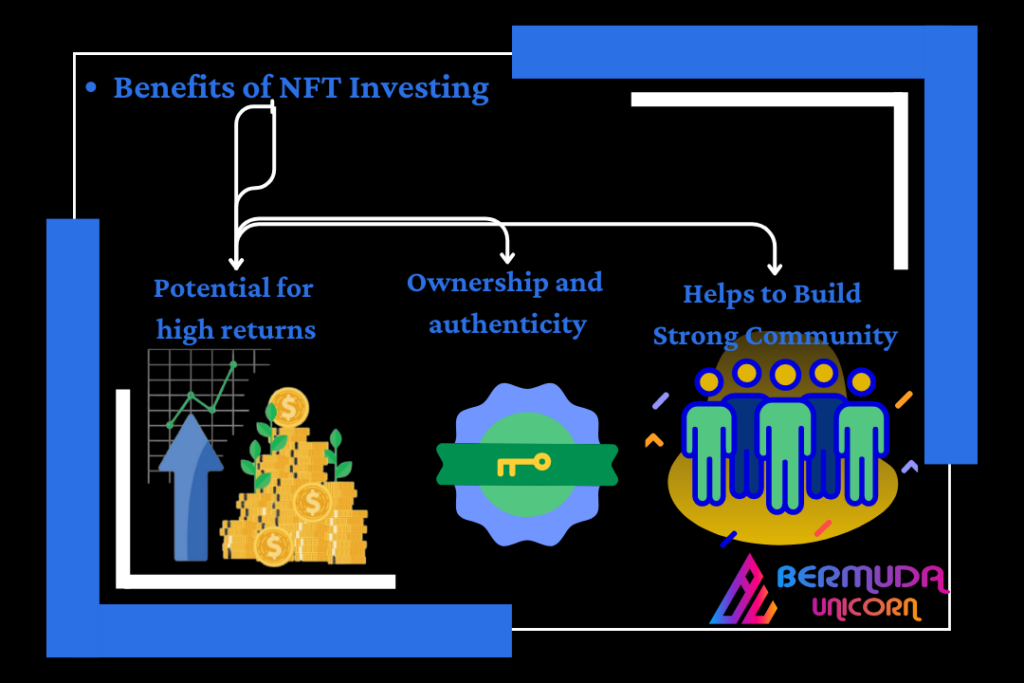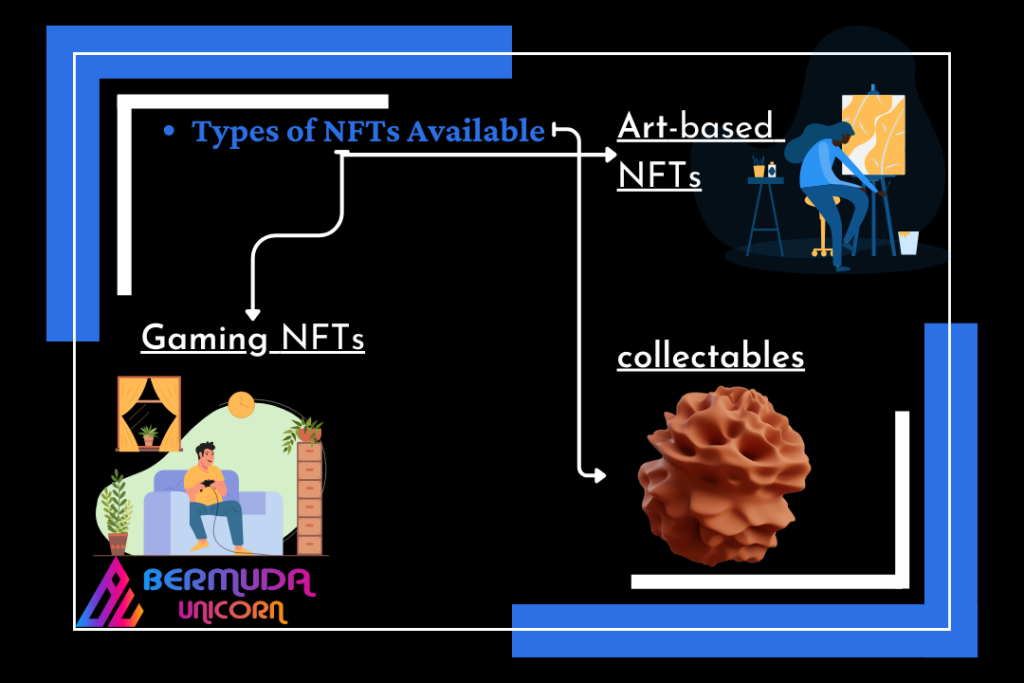![]()

As the world of NFT Investing evolves to include more dynamic, digital options, non-fungible tokens (NFTs) have recently emerged as a popular new form of alternative investment. NFTs are digital assets that exist on a blockchain network and can be purchased, sold, or traded just like any other asset. This novel technology has enabled people to invest in virtual artwork, collectibles, music, and much more.
Benefits of NFT Investing

NFT investing is quickly gaining ground in the world of alternative investments and for good reasons. One of the most significant benefits of NFT investment is its potential for high returns. With some rare NFTs selling for millions, investors have made substantial profits from buying and selling these digital assets.
Another advantage of NFT investing is its low barriers to entry. Anyone can invest in NFTs using cryptocurrency without having to go through traditional financial institutions or middlemen like brokers. This makes it easy for individuals to diversify their portfolios with a new asset class.
Lastly, NFT investing offers a unique opportunity to support artists and creators by purchasing their works directly from them on blockchain platforms. This allows creators to receive direct compensation for their work while also allowing investors to own a piece of history that cannot be replicated or duplicated. As more industries move towards digital spaces, owning rare digital assets may become even more valuable over time.
Risks of NFT Investing
While NFTs offer a unique opportunity to invest in digital assets, they also come with risks. One major risk is their lack of regulation, which can lead to scams and fraud. It’s important for investors to thoroughly research the authenticity of an NFT before making a purchase. Additionally, since NFTs are relatively new and untested as investment vehicles, their value may be highly volatile and subject to drastic fluctuations.
Another risk associated with investing in NFTs is the possibility of losing access to the asset due to technical issues or platform shutdowns. Since many NFT marketplaces are built on blockchain technology, any glitches or malfunctions can result in loss of ownership or access. Investors should also be wary of potential hacks and security breaches that could compromise their investments.
Overall, while there is potential for significant gains in NFT investing, investors need to do their due diligence and carefully weigh the risks before diving into this new frontier of alternative investments.
Types of NFTs Available
There are several types of NFTs available in the market today, each with its unique features and characteristics. First on the list is art-based NFTs, which have gained popularity due to their uniqueness and rarity. These NFTs derive their value from being one-of-a-kind digital assets that cannot be duplicated or replicated. Art-based NFTs can include anything from digital paintings, music files, videos, and even tweets.
Another type of NFT that investors can consider is gaming NFT. These are non-fungible tokens that represent in-game items such as virtual real estate, characters, weapons, and artefacts. The demand for gaming NFTs has been steadily increasing over the years due to the growth of online gaming communities worldwide.

Lastly, collectibles are another type of popular NFT among investors. These include rare trading cards or limited-edition action figures that have been digitised into unique blockchain-backed assets. Collectibles can be based on popular brands such as sports teams or TV shows or simply created by artists who want to build a following around their work.
In summary, there are several types of NFTs available in the market today that investors can consider adding to their portfolios if they’re interested in alternative investments. From art-based collectibles to gaming-related assets like virtual real estate and rare trading cards – there’s something out there for everyone looking for a new frontier in investment opportunities!
How to Invest in NFTs
First and foremost, it is important to understand what NFTs are and how they work to invest in them. NFT stands for a non-fungible token, which means that each token is unique and cannot be exchanged for another item. These tokens can represent digital assets such as artwork, music, or even virtual real estate.
To start investing in NFTs, it is crucial to research the market thoroughly and identify reputable platforms where they can be bought or sold. It’s also important to keep up with trends within the industry, understanding which types of NFTs are currently popular or trending at any given time.
When investing in NFTs, one should have a clear understanding of their risk tolerance as well as their investment goals. This will assist you in determining how much capital you want to allocate towards these investments while taking into account potential losses.
Overall, investing in NFTs has been viewed by many investors as a worthwhile venture with high potential returns; however, careful due diligence and research should always be conducted before making any investments.
Regulations & Tax Implications
One of the primary concerns for investors in NFTs (non-fungible tokens) is understanding the regulations and tax implications of investing in this new asset class. Currently, there is no specific regulatory framework for NFTs, which can make it challenging to navigate legal requirements. However, investors should be aware that the IRS treats digital assets like property when it comes to taxation. This means that any gains made from buying and selling NFTs will be subject to capital gains taxes.
Investors need to keep thorough records of their transactions, including purchase prices and sale prices, as well as any fees paid during transactions. While investing in NFTs may seem like a simple process on the surface, it’s crucial to understand and comply with relevant laws and regulations. As with any investment opportunity, due diligence is essential before jumping into this new frontier of alternative investments.
Overall, while there are still many unknowns surrounding the regulation and taxation of NFTs specifically, investors should approach these investments with caution and seek guidance from financial advisors or legal professionals if necessary.
Conclusion: Future Prospects
As we wrap up our discussion on NFT investing, it’s clear that this new frontier in the world of alternative investments has a bright future ahead. With more and more industries exploring the use of non-fungible tokens, from music and art to gaming and sports, the potential for growth in this market is immense.
One exciting prospect for NFT investors is the increasing adoption of blockchain technology. As this technology becomes more widely used across various sectors, it will likely lead to higher demand for NFTs as a means of authenticating ownership and provenance.
Additionally, as younger generations become increasingly interested in digital assets and online experiences, there may be a shift towards valuing virtual goods just as much as physical ones. This could lead to an even greater demand for unique digital items such as NFTs. Overall, while there are still uncertainties surrounding the long-term prospects of NFT investing, there is no denying that it presents a fascinating opportunity for those willing to take the risk.
